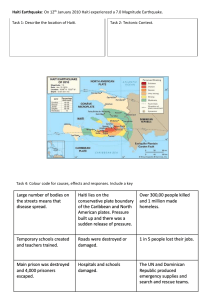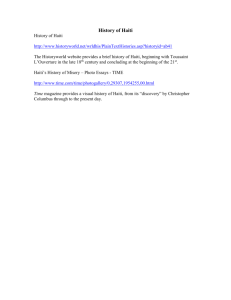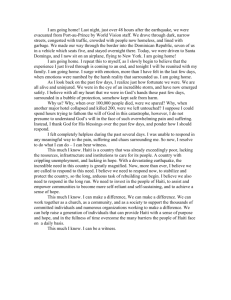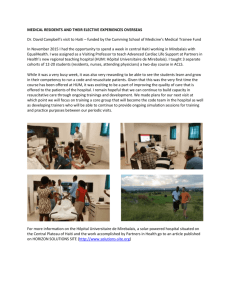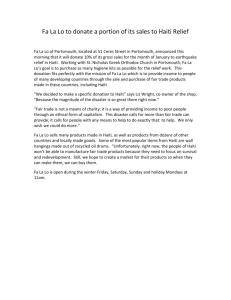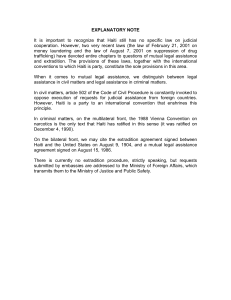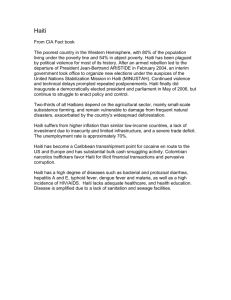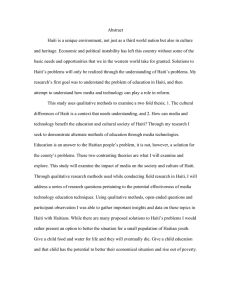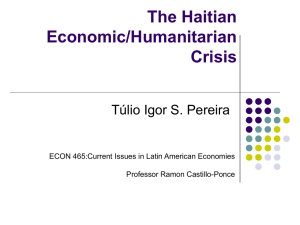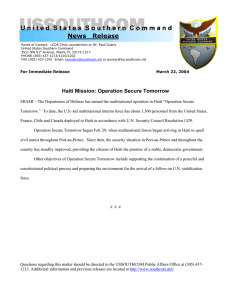Haiti
advertisement
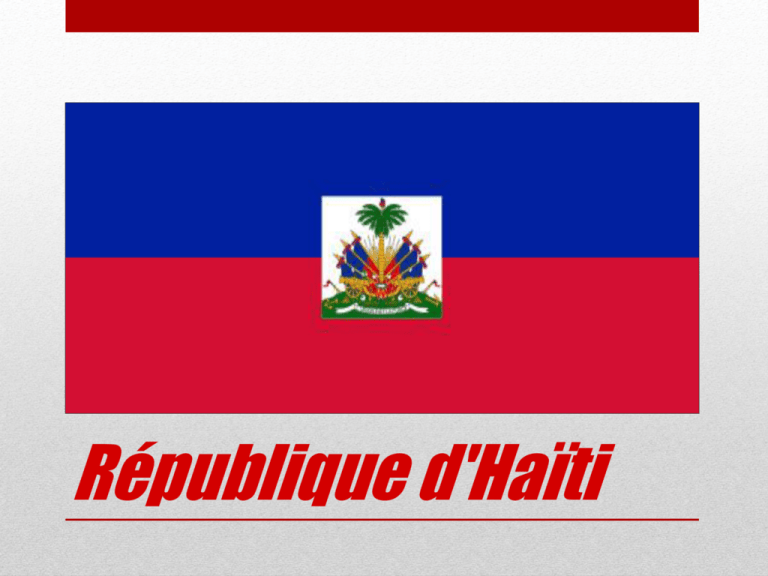
République d'Haïti Key Understanding: • Economic, social, political, and geographic factors affect economic development and interdependence of countries. In 1492, Columbus claimed Hispaniola for Spain. The Taínos were forced to be servants. Within ten years, disease and enslavement had nearly wiped out the Taínos. African slaves were brought in to work the plantations. In 1697, the French gained control of the western side of the island. In 1791, the slaves revolted against the French. Haiti became the world’s first Black republic. Toussaint L’Ouverture led the revolution. He governed the colony until he was kidnapped by Napoleon in 1803. Haiti still has many characteristics of France. Haiti is one of the most underdeveloped and poorest nations in the Caribbean. A lack of natural resources, little foreign commerce or trade, and … Its dependence on foreign nongovernmental organizations (NGOs). Capital is the most lacking factor of production in Haiti. It is expensive for Haiti and Cuba to trade with Central America because of their location. In 2010, an earthquake devastated Haiti. 200,000 people died. The economy has gotten even worse.
